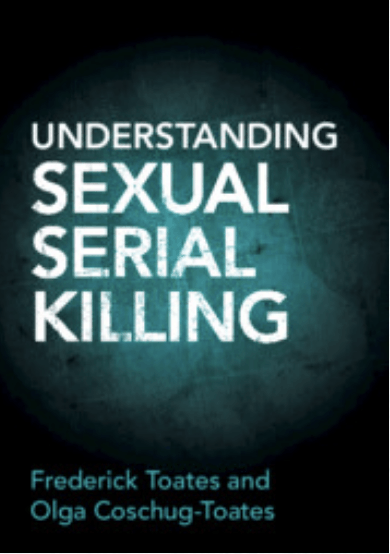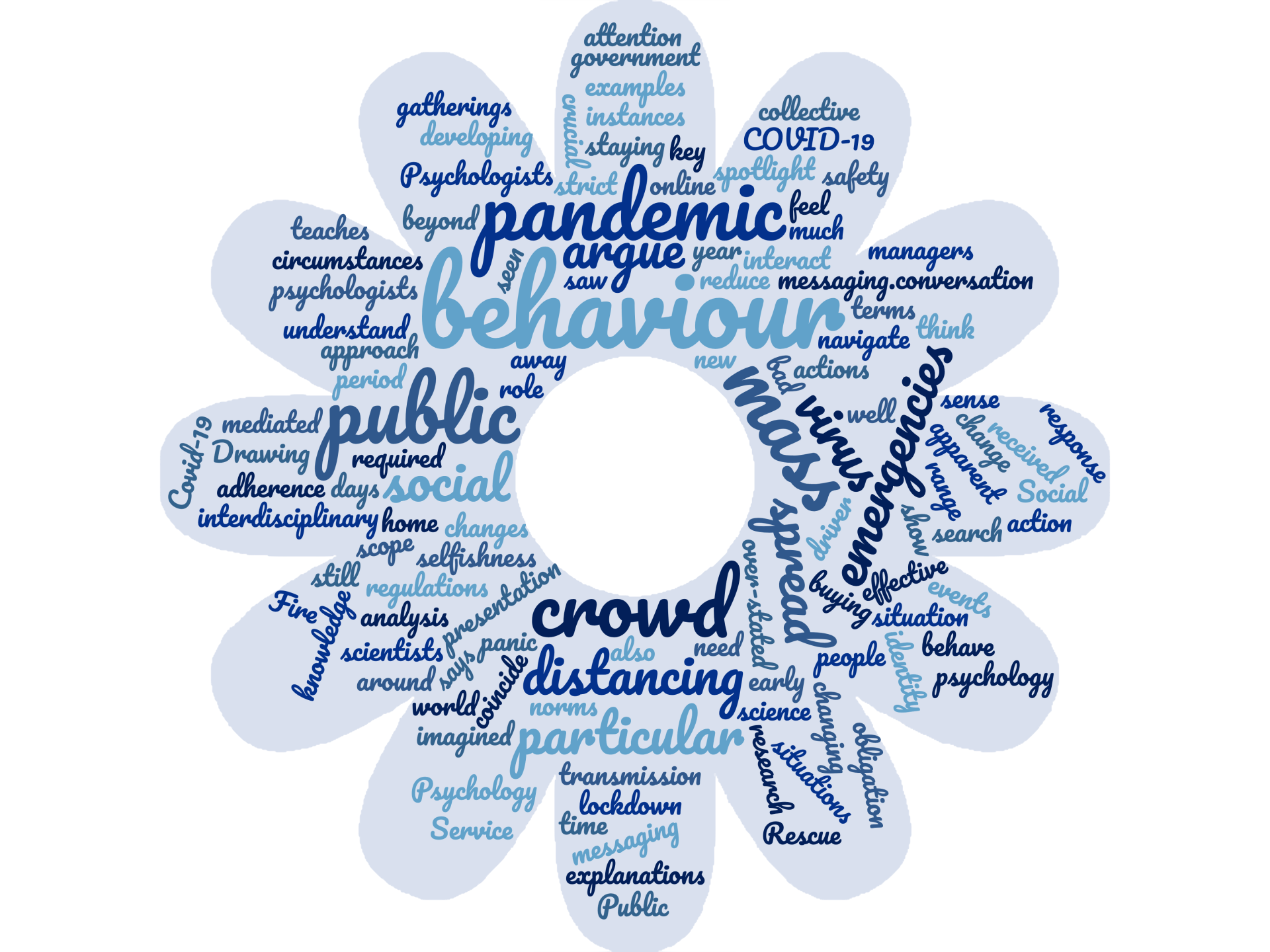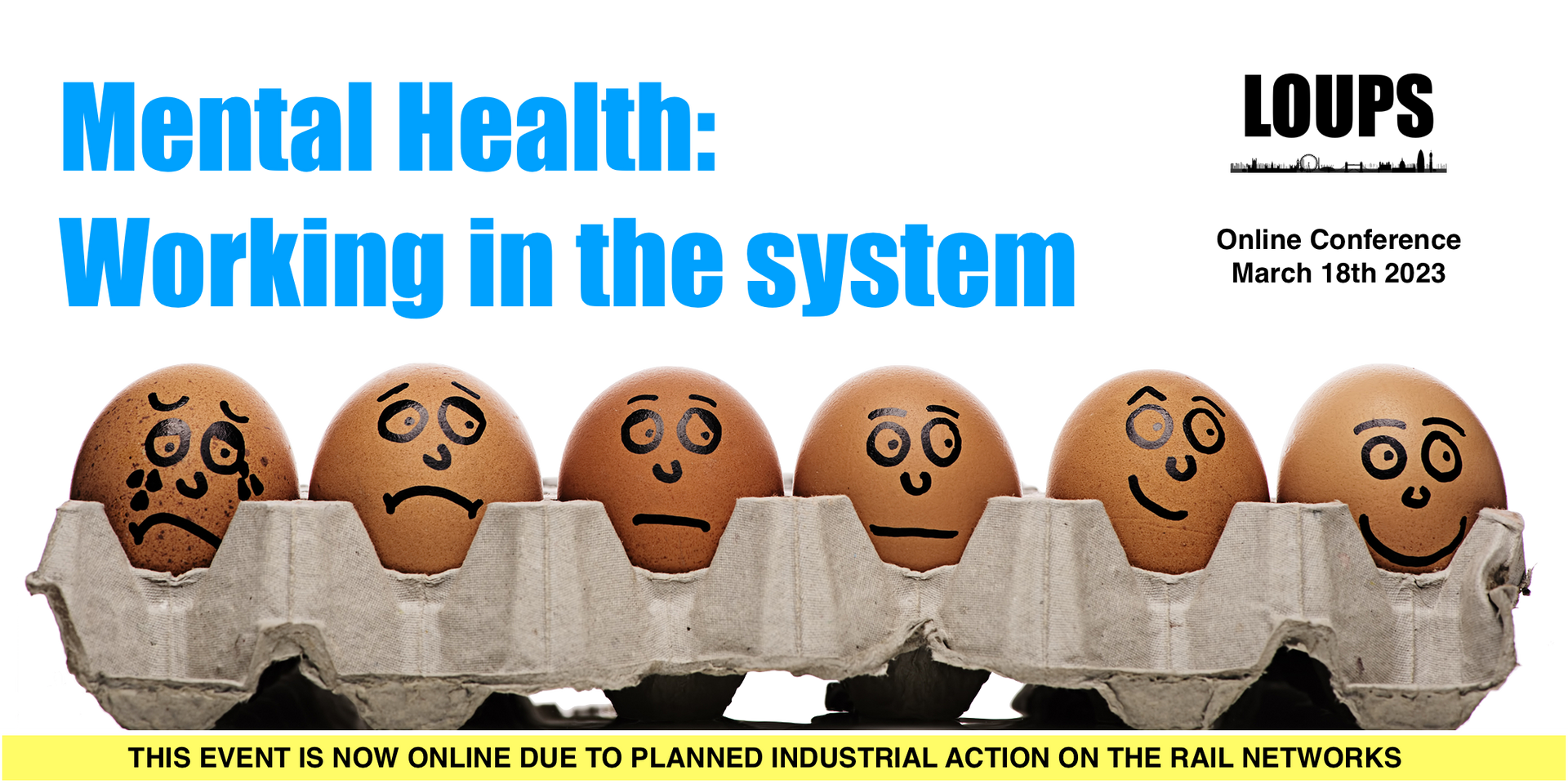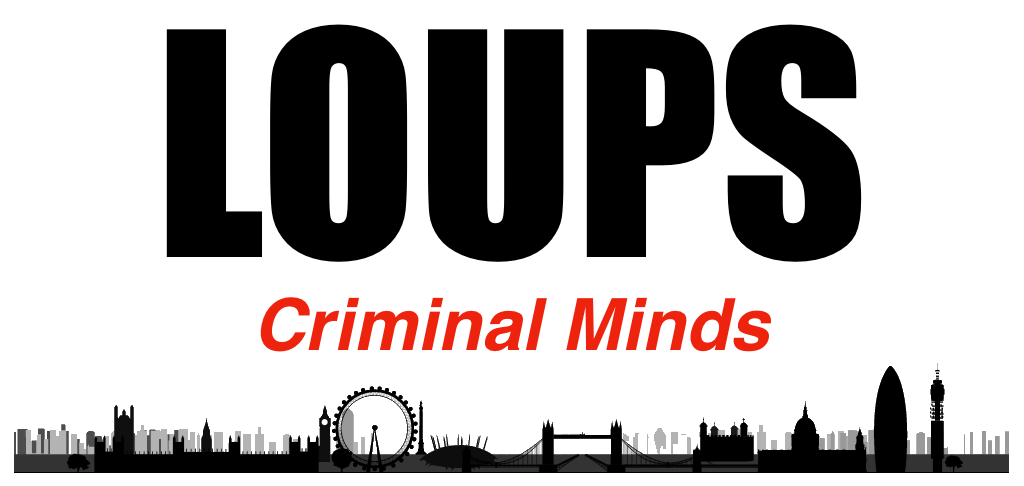Becoming a Clinical or Counselling psychologist
A talk by Prof. Neil Frude
Professor Neil Frude has had a diverse career in psychology including being a Consultant Clinical Psychologist and the Clinical Research Director for Wales.
Neil gave an informative lecture to OUPS about becoming a Clinical or Counselling Psychologist. He stated that psychology is a respected and valuable degree which affords graduates excellent literacy and numeracy skills beneficial to future careers as academics or practitioners. Practitioners are registered with a professional body to provide a service. The Health and Care Professionals Council (HCPC) is the professional body in the UK who set and maintain standards for those registered. The HCPC accredits training courses, enforces ethical practices and appropriate conduct, and if a registered practitioner is found to be guilty of a serious transgression, the HCPC rescinds their registration. Neil presented an excellent lecture providing insight, advice and actionable tips for becoming a clinical or counselling psychologist.
Clinical Psychology.
Clinical psychologists work with clients experiencing mental and physical distress and seeks to reduce this distress and increase wellbeing. Clinical psychologists work in multidisciplinary teams comprised of, for example, psychiatrists, occupational therapists and social workers. Typical work activities include; assessment, formulation, devising and implementing treatment, consultation to other professions, training, and applied research. Research is an important element of clinical psychology because the interventions reflect evidence-based practice. Neil identified four orientations of clinical psychology; the biopsychosocial model, systemic principles, being a scientist practitioner, and being a reflective practitioner. The dominant therapeutic orientation is cognitive behavioural therapy (CBT). CBT has been further developed and Neil mentioned mindfulness-based CBT, dialectical behavioural therapy (DBT) and acceptance and commitment therapy (ACT). Every clinical psychology training course provides training in CBT and must also include another evidence-based therapy, for example, systemic therapy.
Neil presented the pathway to becoming a clinical psychologist in three main stages. First is gaining an undergraduate degree classification of 2:1 or a First, in a British Psychological Society-accredited course. The second stage is to gain experience, for example, through working as an assistant psychologist, an IAPT (Improving Access to Psychological Therapies) practitioner, or though postgraduate research. Neil stated 'no experience, no chance'. Finally, stage three is to undertake a three year, full-time clinical psychology doctorate, all of which are accredited by the BPS and HCPC. The doctorate is a mix of training and practice, and is a salaried position, trainee clinical psychologist. The training is 'generic' because there is a placement in each of the client groups: adult mental health, child and family, learning disabilities, and older adults. At qualification, trainee becomes Doctor, and specialising in a group can be chosen; or Neil spoke of Doctors of Clinical Psychology occupying split posts in which they work with different client groups. The attrition rate is approximately 0.75% however, Neil stressed that this should not be misconstrued as the doctorate being easy, but there is support available if a trainee is struggling, although, if a placement is failed, the placement must be repeated. Other methods of assessment include essays, case studies, a small service evaluation project, and a large scale doctoral project and thesis.
Neil's lecture included sections about the good and the bad of becoming a clinical psychologist. The good, are the interesting people, the persistent need for clinical psychologists and the flexibility of work patterns. The bad is the fierce competition for places on doctorate programmes. The application process includes an extensive online procedure, with some universities having tests which act as an initial sift of the large numbers. There are interviews with a four person-panel, such as; course staff, trainee clinical psychologists and, service users and carers. Referees are mandatory and form a significant dimension of the application because the references can make a candidate stand out. Client-facing experience is key and if a candidate has worked for or alongside a qualified clinical psychologist and receives a glowing reference from them, that is the gold standard of references. Neil emphasised that, owing to the competition, there is the need for a Plan B. On the other hand, do not be discouraged because there may yet be more opportunities on the horizon.
Neil talked about the future of clinical psychology. Covid-19's enduring impact will inevitably lead to rising psychological issues placing greater demands on the psychological workforce. Health Education England (HEE) has increased the number of places for the clinical doctorate 2020 intake and have announced that they are considering an expansion of psychologically-informed roles. Neil highlighted the importance of keeping updated and recommended BPS membership. In terms of increasing the chance of being accepted onto a clinical psychology doctorate programme, Neil reiterated the importance of gaining clinical experience, showing enthusiasm and commitment in support work, and working towards excellent references.
Counselling Psychology.
Counselling psychology is informed by the scientific approach and draws on established psychological research, in addition to humanistic perspectives. There is an emphasis on the therapeutic relationship and reflective practice. Counselling psychologists do have some overlaps with clinical psychologists but it is important to not conflate the two or to confuse counselling with counselling psychology:
- Counselling: a talking therapy that involves a trained therapist listening to you and helping you find ways to deal with emotional issues (https://www.nhs.uk/conditions/counselling/).
- Counselling Psychology: integration of psychological theory and research with therapeutic practice. The practice of counselling psychology requires a high level of self-awareness and competence in relating the skills and knowledge of personal and interpersonal dynamics to the therapeutic context (https://careers.bps.org.uk/area/counselling).
Neil covered two pathways to becoming a counselling psychologist: university doctorates and an independent pursuit through the BPS. There are fourteen university doctorates available in the UK and there are some part-time study options. The independent route is a flexible training option to develop the necessary competencies to become a counselling psychologist. Each pathway is expensive because there are costs in addition to the training fees, such as, supervision fees and the cost of personal therapy, which is a mandatory requirement for the courses. Neil referenced the BPS website as it is a great resource which details relevant information and links to institutions offering the accredited counselling psychology doctorates, as well as the information for those wanting to complete the BPS counselling psychology qualification.
There was a brief question and answer session at the end of the lecture (see below). To summarise the key advice from the Q&A; client-facing experience is imperative; a Masters degree can 'wipe out' an undergraduate 2:2 classification; MScs in research methods are useful; Google 'clearing psychology Leeds' for information about the clinical programmes; despite the predominance of young candidates in the clinical doctoral programmes, there is no rule that prohibits any age group from applying, and the BPS website is a valuable source of information for anyone interested in becoming a clinical or counselling psychologist.
At the end of July 2020 the website below goes live. Neil had worked on an intervention to be delivered in the community however, Covid-19 has rendered that impossible, so Neil has redesigned it for an online platform. ACTivate Your Life is an online course providing four psychoeducational films forty-five minutes in length, as well as downloadable material. It is online therapy/training based on mindfulness but with additional influences. It would be beneficial for a wide number of people to access it, and it is particularly relevant in these Covid-19 times because not only does it demonstrate clinical psychological interventions, it also demonstrates the adaptability of psychology to societal changes. ACTivate Your Life launches a few months after the OUPS conference, Technology and Psychology, and offers bitesize experience of psychological interventions. Technology has become ever more prevalent in daily life and technologically-mediated therapeutic interventions will only increase, so ACTivate Your Life provides a valuable early example.
https://phw.nhs.wales/activateyourlife
Thank you, Neil for a very informative lecture about becoming a clinical or counselling psychology. Thank you to OUPS for another brilliant lecture.
CAREERS IN CLINICAL AND COUNSLLING PSYCHOLOGY
NEIL FRUDE JULY 2020
RESPONSES TO STUDENT QUESTIONS POST-PRESENTATION
Experience
Can I get experience whilst on my undergraduate and then apply immediately after graduating? Or does that not help with chances?
It would help, certainly, but only a little. It's VERY unlikely that someone would be accepted immediately on graduating
How can you get experience without a degree?
You can volunteer - but you do need a psychology degree to be eligible for training
Experience-wise, surely mental health support is just as valuable as an assistant psychologist ?
Maybe, but that's not how it would be regarded. Working with a clinical psychologist gives you extra insight into professional psychological work
- Do you think it is helpful to work as a counsellor while training to become a clinical psychologist?
- I'm in my 4th year with OU (probably too early for this conference) but where should I be aiming to work/volunteer to help with my degree?
- Would volunteering as a crisis counsellor online whilst doing my undergrad degree be enough as experience ?
(Above 3) Any experience helps - but the nearer it gets to the 'ideal' the better - the ideal would be working with clients for 2-3 years, in a variety of settings and with different clients (e.g. adults, people with dementia, people with eating disorders, post-stroke patients, etc.) and under the direct supervision of a clinical psychologist.
Is there a version of the PWP trainee role in Scotland ?
No - the PWP role is specifically linked to IAPT (and therefore only in England). But there will be 'assistant' roles in Scotland.
Have there been applicants with transferable e.g. support work that have managed to gain a place without the clinical experience ?
I doubt it - this is some way from the 'ideal' experience as described above
- Would volunteering as a Samaritan/Crisis counsellor and completed psych degree be enough as experience for a doctorate ?
- Forensic experience any good ? NHS with offenders
- Aside from AP roles and PWP are there any other 'good' experience roles to look into ?
- What about support worker experience ?
(2 above) again, all of these are some way away from the 'ideal' experience as described above. They will all count for 'something' but won't compete with the many people who apply with PWP or assistant experience, I'm afraid.
In South Wales, what are the best places to gain experience ?
You could try to get in touch with a local psychology service and ask for advice - not sure if you're looking for an assistant job or to volunteer. Hopefully you'll be put in contact with someone who can advise. This advice applies to all areas - not just South Wales.
Degree requirements
If you have a BPS accredited degree does the MSc need to be accredited ? OU run a MSc Mental Health Science that sounds very interesting but would this be less helpful than a 'traditional' psychology MSc when looking at the DClinPsy?
The MSc doesn't need BPS accreditation. Not sure what you mean by a 'traditional' psychology MSc - the best MSc's are Clinical Psychology (these are NOT of course clinical qualifications) or Health Psychology or Research Methods. The relative value of the OU MSc would depend on how 'psychological' it is - for example, is it run and delivered by the Psychology department within the OU?
So even with a 1st I'm better doing a masters (and gaining experience) ?
A 1st is not sufficient - you need 'extras' - most important is experience, but a relevant Masters would also give you extra brownie points.
Do you need an MSc? or is experience just as good?
See immediately above
Are you able to apply for the doctorate straight from an undergraduate degree or is it better to do an MSc first.
You can apply at any time- but the chances would be slim indeed. See my other responses.
Can someone with a first class psychology degree practice counselling without actually doing a doctorate?
You mentioned counselling - this is not Counselling Psychology. Anyone one can practise counselling - it isn't covered by the HCPC and isn't a 'protected title' in law. You'll have to look for information on counselling careers - this is outside the scope of my talk.
If a masters came out as a 2.2 is it better to do another masters and my undergrad is a 2.2 but I have medical evidence as to why, would this be overlooked in this case ?
You can apply with a 2:2, but courses are expecting academic excellence and relevant experience. To stand a good chance you will need to demonstrate academic excellence, and a 2:2 is not regarded in this way. Beware that some courses now won't take anyone who has a undergraduate 2:2 even if they follow this with an excellent MSc or even a PhD! See the Clearing House to identify which courses have this policy.
I'm on the OU BSc Psychology with Counselling degree and plan to train and work as a counsellor. Would I be best to do a Masters as training for the Counselling job as a better chance of gaining a doctorate place for Counselling Psychology later on ?
To become a counsellor, apply (immediately on graduating, if you like) for a counselling course. You won't need a Masters to get on such a course (indeed, it may well be a Masters). If you later wish to apply for a Counselling Doctorate then your counselling qualification and counselling experience will all count. Best to show, however, that you have also been "keeping up your psychology"
I'm a bit concerned about the MSc as there's only one Forensic Psych course in Scotland but it's not HCPC accredited. Would it make sense to do that Masters anyway and then a HCPC accredited doctorate?
Not sure where you want to end up. To become a Forensic Psychologist (practitioner) you will (eventually) need to do an HCPC accredited course. To get to the point of applying, the Forensic Psych course you mention might be the best - but a MSc in clinical could be better. You need to try to get local advice - first point of call could be the BPS - or maybe look up the qualified Forensic practitioner psychologists based in Scotland - using the HCPC register - and contact one of those.
Is it better to do an MSc in Mental Health or to gain levels NVQ (1, 2, 3 etc) in counselling skills ?
For a future career as a Clinical Psychologist (I'm guessing that that is what you want) it would be better to do the MSc - to demonstrate academic excellence.
Should I take a masters with a placement ?
Better with a placement - because that will give supervised client contact - and this is very valuable (especially if the supervisor is a psychologist)
What are your thoughts on Lancaster university, my understanding is the process for entry is different from the other universities?
They were one of the first to adopt an online 'first sift' of applicants. Other than this, I don't know anything about their specific entry procedure. Look it up on the Clearing House Leeds site, or the Lancaster course website.
Age
- Is age an issue? I'm 40 but obviously have a lot of life experience? Lol
- Is 48 too old to be in year 2 of a psych degree
- At 55 is there any point in me going to MSc would I stand a chance of getting on a doctorate?
- In reality, are available positions for clinical psychologists biased towards younger people on the basis that as funding is provided they will want to get more working years out of their investment?
- Are the acceptance rates regarding age the same for counselling psych as for clinical ?
The age factor. First, there is no age barrier for applying to clinical or counselling psychology courses. You can apply at any age. Most people who apply are in their 20s or 30s, but people are accepted after this age. The number is small but that may well just reflect the age of those applying. I can't imagine that there will be a difference in the 'acceptability' of older age candidates between Counselling P and Clinical P, although the fact that Couns Ps pay for themselves might be relevant here. I don't know whether any 'unconscious bias' reflecting the "number of years of expected professional life" might be operating. Good luck everyone!!
Miscellaneous
What are the other costs (for Counselling Psychology) other than the course itself ? Roughly how much are they ?
Couns. P. is through either one of 14 University based doctorates (D.Cop.) or the BPS Q.Cop route, which is at Doctoral level but not a doctorate. University courses have fees of around £20-24K for the course and then clinical supervision (probably £3-4K) and therapy (£2-3K) plus any travel for placements, etc. So maybe £30K in all. The BPS route is a one-off payment of roughly £7K but then payments for the various University courses that constitute the material, plus supervision, plus therapy. Really difficult to calculate - and will be different for everyone. Most of those I've met who are on this route say that, overall, it's at least as expensive as the Uni route.
Are there many occupations that could be acquired with just a psychology degree initially ?
There's no way to work as a 'psychologist' with just a first degree, but psychology is a well recognised quality degree - so you could step into a job that requires "a graduate" or use a psychology degree as a step into some other training - such as for accountancy, civil service, retail management, etc. Or counselling!
Besides CBT is Gestalt also accepted ? Is a counsellor similar to a psychotherapist ?
Gestalt is not generally well-regarded or prominent these days, at least in British Clinical Psychology and is not - as far as I know - covered in any training course. The terms "counsellor" and "psychotherapist" are used to label many different types of person, and are sometimes used interchangeably. Neither is a 'protected term' in law - like "clinical psychologist" or "psychiatrist".
Is there a guide that outlines the type of questions we would face during a DClinPsy interview ?
No guide as such. Questions relate to past experience, including clinical experience and research experience, personal orientation and values, knowledge of the profession, maybe future ambitions within the profession, and ideas about controversial issues such as the pros and cons of diagnosis. The interviewing panels will be interested in your 'style' and 'tone' as well as in the content of your answers. They will be interested in whether you are reflective, lively, and of a friendly disposition, as well as whether you know your way around statistics and relevant psychological theory.
Do you have to do a basic skills counselling course if you want to become a counselling psychologist ?
No, this wouldn't be essential. But that's not to say that it wouldn't help to have a counselling qualification and experience of client counselling.
If travelling long distance regularly is difficult due to disability is clinical psychologist not the best route to pursue ?
There is an increasing emphasis on diversity. I think courses would make 'reasonable adjustments' and could ensure that all placements were commutable.
What about salaries for Scotland? And threat of bursaries?
Salaries are currently the same across the UK. The recently announced changes for England will almost certainly be matched in the other three countries. Very unlikely that Scotland would bring in bursaries, I think. I'm pretty sure that the 'bursary threat' has receded for a while at least.
My passion is perinatal psychology - would clinical psychology be best for that or a different type of psychology career (eg health psych, counselling)?
Perinatal psychology is clearly a small part of any of those professions, and all are generic in their training. So you might be frustrated by the fact that 98% of what you're learning and doing during training will not by perinatal focused. I think that Clinical would be best, but it's also the most difficult to get into. Health P next best, I think - I don't know of counselling psychologists working in perinatal - but maybe there are.
Good luck everyone!!!!










